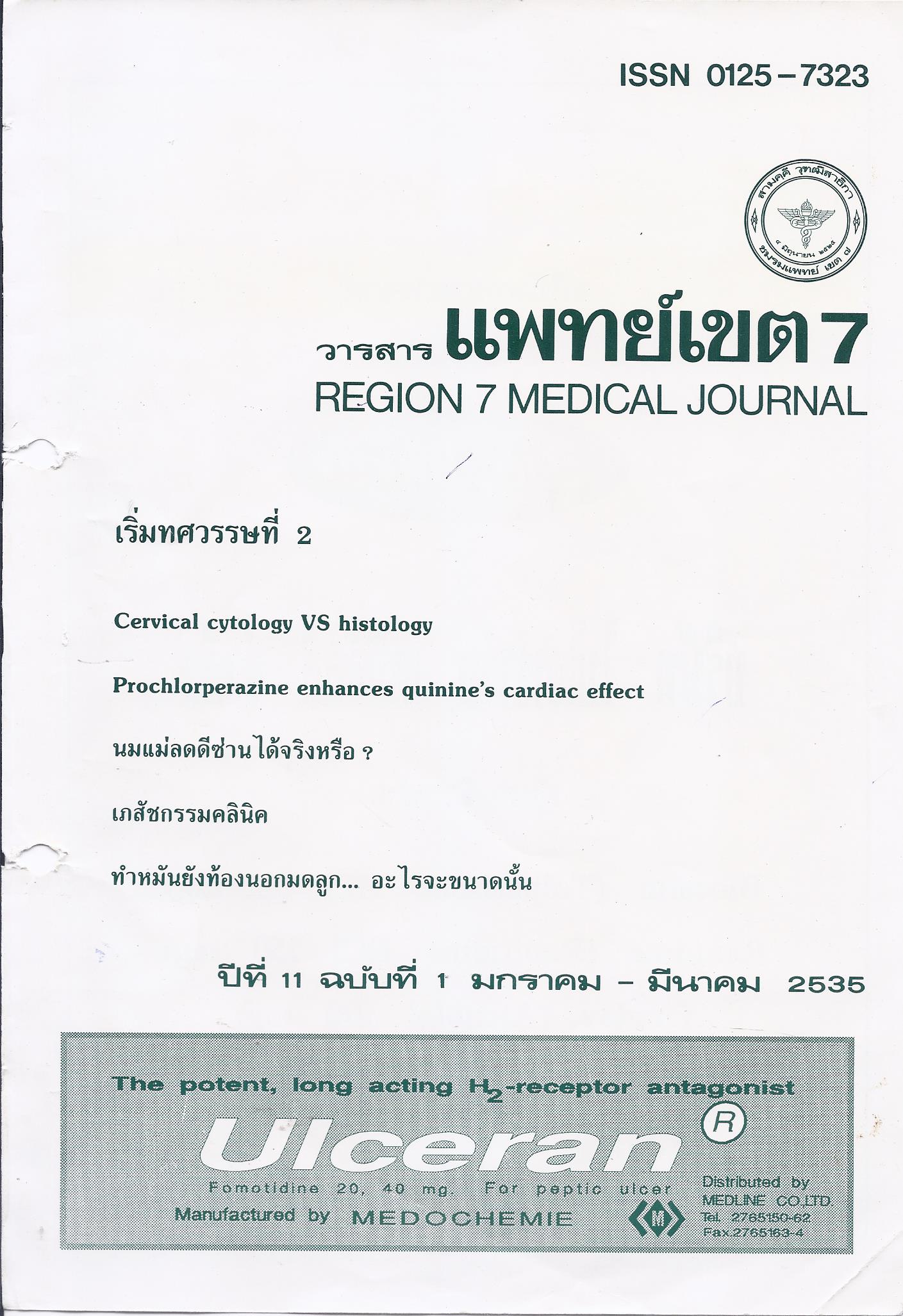Amplification of Quinine Cardiac effect by The Resistance-Reversing Agent Prochlorperazine in Falciparum Malaria
บทคัดย่อ
The potential toxicity of "reversing agent" treatment was assessed in patients receiving quinine for falciparum malaria. The QTc interval, an electrocardiographic (EKG) marker of quinine effect, was measured every 30 min in 6 patients receiving intravenous uinine alone and in 6 patients receiving quinine with the resistance-reversing agent prochlorperazine (Compazine,R Stemetil)R. Prochlorperazine (PC) alone was given to 6 healthy Thai volunteers. Compared to baseline values, the QTc interval was prolonged 30, 60, 90 and 120 minutes after PC injection in patients who got both drugs (p<0,05), The QTc interval was unchanged with quinine alone (p>0.2) and shortened after PC alone. EKG changes could not be explained by variations in either PC or quinine blood levels. Plasma PC levels did not correlate with the QTc interval (p>0.2) and neither total nor free quinine plasma levels rose after the injection of PC.
Only benign effects of the entimalarial drug quinine were amplified by the reversing agent PC in this investigation, but the data clearly indicated that resistance-reversing therapy could amplify other, more dangerous, drug effects. Potential toxicity must be considered before using reversing agents to treat malaria or cancer.
ดาวน์โหลด
เผยแพร่แล้ว
รูปแบบการอ้างอิง
ฉบับ
ประเภทบทความ
สัญญาอนุญาต
ลิขสิทธิ์บทความเป็นของผู้เขียนบทความ แต่หากผลงานของท่านได้รับการพิจารณาตีพิมพ์ลงวารสารแพทย์เขต 4-5 จะคงไว้ซึ่งสิทธิ์ในการตีพิมพ์ครั้งแรกด้วยเหตุที่บทความจะปรากฎในวารสารที่เข้าถึงได้ จึงอนุญาตให้นำบทความในวารสารไปใช้ประโยชน์ได้ในเชิงวิชาการโดยจำเป็นต้องมีการอ้างอิงถึงชื่อวารสารอย่างถูกต้อง แต่ไม่อนุญาตให้นำไปใช้ในเชิงพาณิชย์




